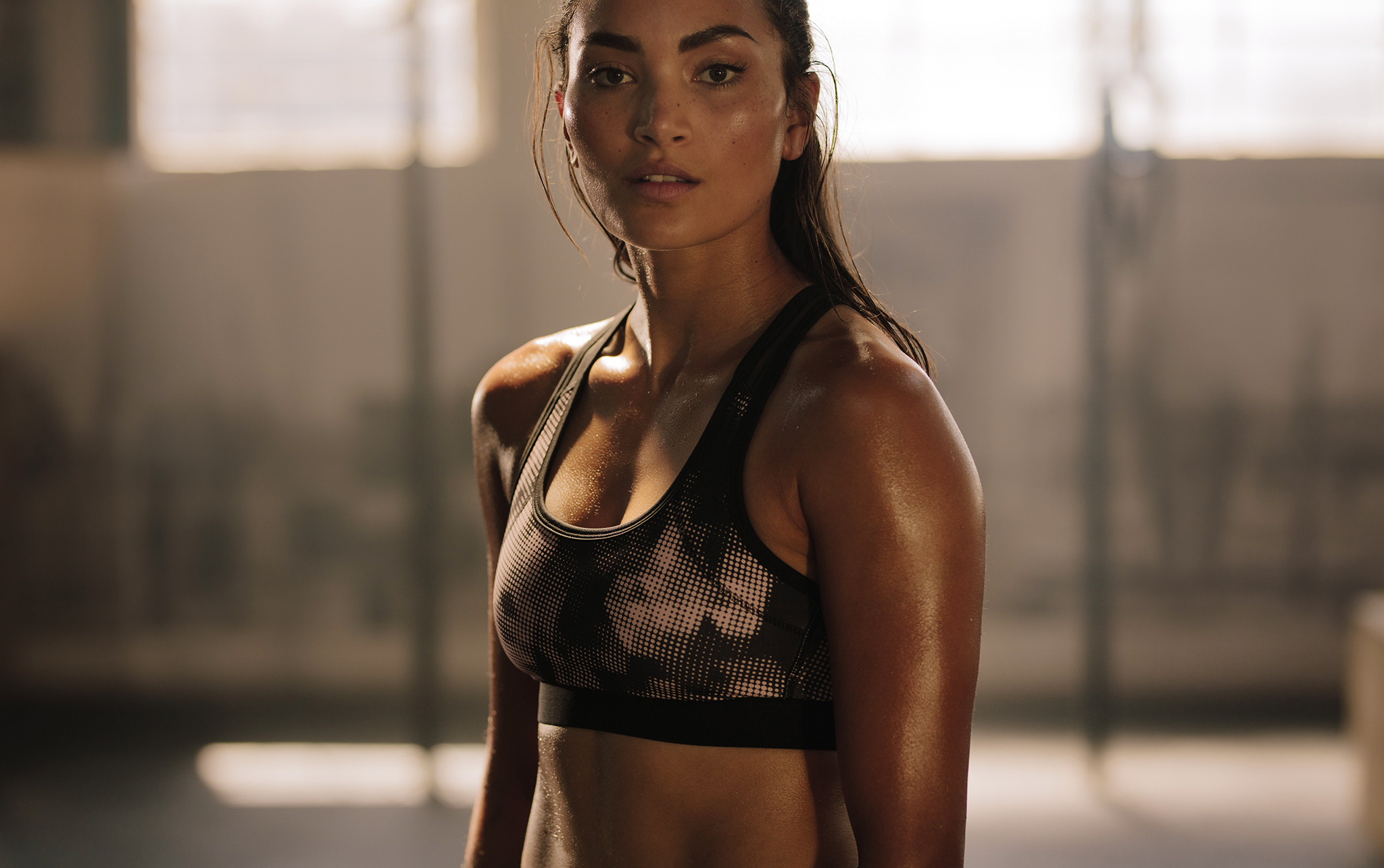You know you’ve put in a good workout when you’re exhausted and drenched in sweat. But, what if that doesn’t happen? Does it mean the workout did work and what is this connection between sweating and weight loss, anyway?
If you’re working on improving your fitness levels, these questions and more have probably crossed your mind at one point or another. So, let’s find out if there is a connection between how much you sweat and the amount of weight you lose.
Why do I sweat?
No one likes to lift up their arm and see those telltale underarm stains, but, despite the discomfort, sweating does have a legitimate biological purpose––to regulate our body temperature.
Whether you have a temperature, are embarrassed, or exhausted from that exercise routine, perspiration is there to help cool your body down to a safe level.
It sounds so simple, but many people still wonder, what goes on behind the scenes in their bodies and if sweating helps to lose fat or just water.

Does sweating more help you lose weight?
Feel that burn! Push it to the next level! Sweat it out! We’ve all heard these sayings, and they do inspire us to push further and not give up on our routine. However, as to whether that sweat that we’ve toiled for will help us lose weight, well that’s another question entirely.
When we sweat during exercise, it is usually because we have engaged our metabolism, kicking it into fat-burning mode. But, that said, to what degree sweating itself is responsible for weight loss isn’t so clear cut. For that, we need to know more about two elements of perspiration that can affect your physique–––water weight and fat burning.
Losing water
As you sweat, you naturally lose water; it seeps from your pores onto your skin, reducing any internal water retention. As you won’t be carrying as much fluid weight, your body will feel lighter and look thinner, but these results may be temporary.
The thing is, in this case, that slimmer look from water-weight loss occurs whether put in a grueling 2-hour session at the gym or relaxed in a sauna. And while both these activities are healthy, afterward you are going to need to hydrate, and that water weight could return as easy as it left.
Fat burner?
Like with any biological process, sweating does use calories, so there is a slight connection to weight loss there. But, the big question is, does sweating burn fat?
Although sweating might be an indicator that the metabolic process is in progress, there’s little evidence to suggest that sweating more leads to increased weight loss.
This is because the amount you sweat is directly tied to your metabolism, your overall fitness levels, and your genetics, so put aside that fat people sweat more myth, it’s not completely true.
Which is why, considering these factors, it is exceptionally difficult to understand to what degree your fat-loss is impacted by the amount you sweat.
Sweating too little (or too much)
While the sweat helps you lose weight connection may not be direct, if you’re working out, you’d like a little sweat-recognition to show for it, right? But what If that doesn’t happen? Many people wonder: “do you always have to sweat during a workout?”
Sweating too little may be normal for you, or it could indicate an underlying problem is afoot. If you’re working out hard, building up the heat, and still not sweating, it might be time to take a second look. In this article, we tell you more about when you need to worry if you’re not sweating, and when it’s just one of those things.
On the other hand, you may also find yourself sweating too much, and that can be dangerous. So, make sure to stay hydrated, choose appropriate clothing, and exercise in a place where there is plenty of good air––a well-ventilated gym or an open park––to keep your health in first place.
Losing weight––the bottom line
Now that we know that the amount you sweat doesn’t necessarily reflect how much you’re going to burn let’s take a moment to look at what can help.
If burning fat is on your agenda, the trick may not in looking at your sweat levels but instead to focus on what really matters––your overall fitness.
In terms of optimizing your exercise routine, seek out activities, such as HIIT and running that target fat burning, even if buckets of sweat aren’t pouring from you, you’ll see the results.
The second thing you should do is adapt your diet to maximize your efforts, get lots of vegetables, lean proteins, and healthy carbs, to give you the energy and nutrients you need to work out like a pro, and don’t forget to hydrate––you’ll need it.
